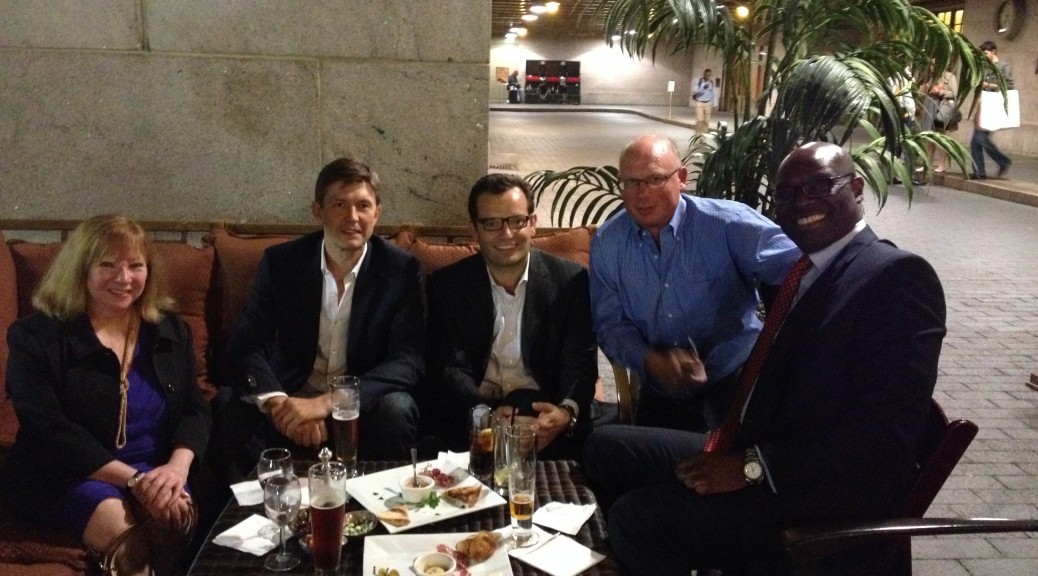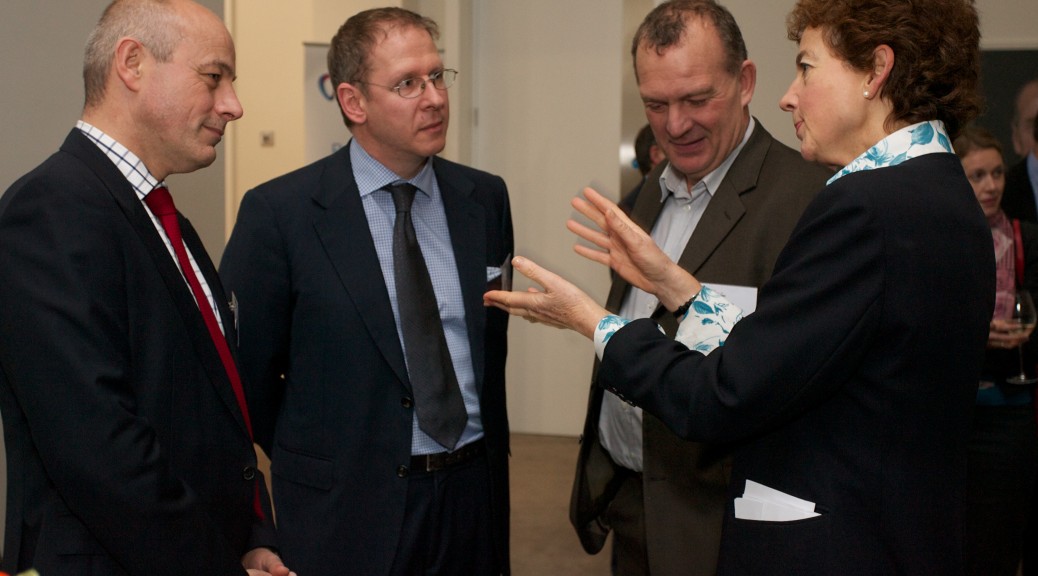
Speaking at a networking reception hosted by the Royal Academy of Engineering for Sainsbury Management Fellows, President, David Falzani (second from left), said:”I‘d like to thank the Royal Academy, not least for hosting this event today, but also for its continued and essential support of the Sainsbury Management Fellows scheme, including the promotion of the bursary and the selection process for choosing new SMFs.
We in turn have also continued our activities in supporting the Royal Academy: as selectors and then mentors for the Engineering Leadership Awards, in supporting the ELA annual events, and the Executive Engineers event.
At our Annual Dinner last May I asked why is it so important to have engineers and scientists gaining top MBAs and business qualifications?
I’d like to take this opportunity to repeat my answer, that the business world has shifted. The third great revolution of modern man, the information revolution, has transformed every aspect of life and business.
What counts for business success today is not who you know, nor even what you know, but today the maxim for success would perhaps be, how quickly can you learn. Today, all companies are technology companies in some respect, and all information is instantly out of date.
What’s crucially important is the ability to harness this flux of technology and information in the business context in order to maximise chances of success.
Within this interface of technology and money no one can be more at home than the engineer with a deep business understanding. This idea lies at the heart of the SMF Scheme.
The SMF scheme was created almost 30 years ago to get more senior executives with engineering qualifications at the top of organisations. Today, the scheme has 300 Fellows, each with a first class engineering background, and an MBA from a top international business school.
Many fellows are helping further develop some of the UK’s largest corporations, whilst many others have gone on to create high growth technology companies worth over £500m.
As an organisation, and a group of like-minded individuals, we remain keen to continue to support the Royal Academy, and perhaps become involved with emerging initiatives such as its Enterprise Hub and other areas of mutual value.
Finally, I would like to ask our Fellows here this evening to consider how they can become involved in current and future activities of the scheme, and also with our fund raising activities. We remain keen to add a few more volunteers to our fundraising campaign team.
In closing, I hope this evening proves to be a success, and an example of working in a closer partnership with the Royal Academy.
“I‘d like to thank the Royal Academy, not least for hosting this event today, but also for its continued and essential support of the Sainsbury Management Fellows scheme, including the promotion of the bursary and the selection process for choosing new SMFs.
“We in turn have also continued our activities in supporting the Royal Academy: as selectors and then mentors for the Engineering Leadership Awards, in supporting the ELA annual events, and the Executive Engineers event.
“At our Annual Dinner last May I asked why is it so important to have engineers and scientists gaining top MBAs and business qualifications?
“I’d like to take this opportunity to repeat my answer, that the business world has shifted. The third great revolution of modern man, the information revolution, has transformed every aspect of life and business.
“What counts for business success today is not who you know, nor even what you know, but today the maxim for success would perhaps be, how quickly can you learn. Today, all companies are technology companies in some respect, and all information is instantly out of date.
“What’s crucially important is the ability to harness this flux of technology and information in the business context in order to maximise chances of success.
“Within this interface of technology and money no one can be more at home than the engineer with a deep business understanding. This idea lies at the heart of the SMF Scheme.
“The SMF scheme was created almost 30 years ago to get more senior executives with engineering qualifications at the top of organisations. Today, the scheme has 300 Fellows, each with a first class engineering background, and an MBA from a top international business school.
“Many fellows are helping further develop some of the UK’s largest corporations, whilst many others have gone on to create high growth technology companies worth over £500m.
“As an organisation, and a group of like-minded individuals, we remain keen to continue to support the Royal Academy, and perhaps become involved with emerging initiatives such as its Enterprise Hub and other areas of mutual value. Finally, I would like to ask our Fellows here this evening to consider how they can become involved in current and future activities of the scheme, and also with our fund raising activities. We remain keen to add a few more volunteers to our fundraising campaign team.
“In closing, I hope this evening proves to be a success, and an example of working in a closer partnership with the Royal Academy.”








